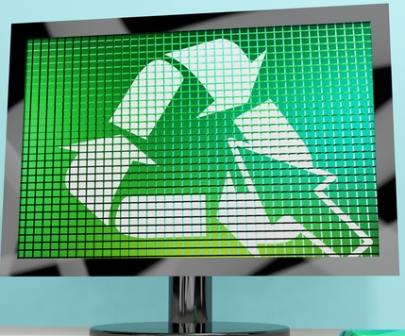
Companies and businesses regularly upgrade their IT equipment, including buying new computers, accessories and even network hubs. The majority of these companies do not retain their old equipment, but they are finding it increasingly hard to dispose of it thanks to stricter EU laws which prevent the throwing away of electrical or electronic devices into landfills.
So many computers contain toxic elements such as arsenic that it is no longer practical to allow them to just disintegrate or thrown in to landfills. These laws mean that companies are turning to recycling as an alternative way of getting rid of their equipment.
Recycling IT equipment is the most practical way of disposing of old computers and systems which cannot be thrown into the landfill. While in the USA only a small percentage of electrical goods are recycled, the UK has a much smaller population but a much bigger percentage of recycled goods. All of this means that there is less plastic and toxic waste contaminating the ground and nearby water sources. It also means that companies are able to dispose of goods with a clear conscience, and can be sure that they are complying with electrical waste laws.
In addition to preventing computers from filling up the council tip, recycling can also benefit the local community, and make computers more widely available. The UK needs to improve its computer literacy in order to compete with larger countries such as the USA and India, and so it is important that everyone has access to technology. Recycling the equipment allows companies to send the equipment to disadvantaged people who would benefit from the use of these computers. As the majority of companies throw away IT equipment while it is still relatively new, recycling extends the life of these computers and enables people to learn skills and become computer literate.
